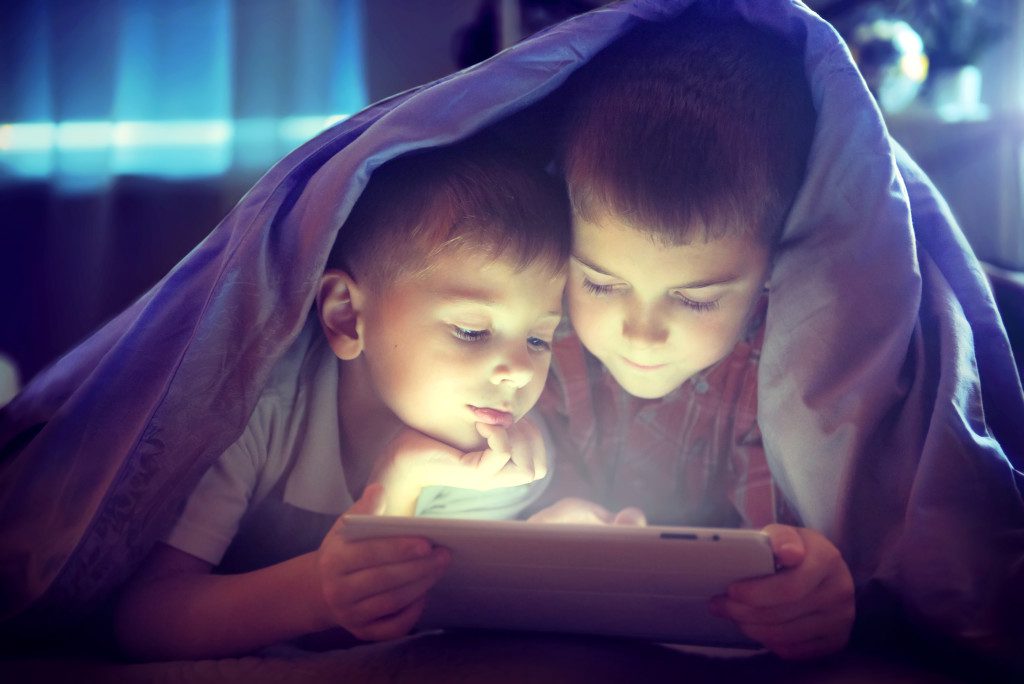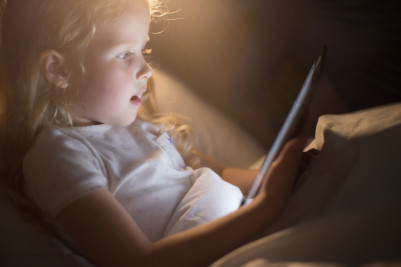Melatonin for Kids?
When I was growing up, we had dial up internet and Flintstones vitamins. And to be honest, we thought that was pretty awesome. Nowadays with the internet and social media you can look up anything and get an answer within seconds. Now we have a vitamin or supplement for just about everything.
Testosterone, weight loss, hair and nail growth, stress, memory, you name it.
Does that mean they’re all safe and recommended?
Melatonin has become the latest craze around sleep. The supplement promises to help you fall asleep faster and sleep all night. One particular supplement I saw online promises: “NO MORE SLEEPLESS NIGHTS”, “FALL ASLEEP FASTER”, “WAKE UP REFRESHED” AND “SLEEP BETTER”. I mean who wouldn’t want all of that? Oh, and it also claims to be all-natural and non-habit forming.
One of the big selling points of melatonin is that it’s “natural.” It’s not some lab designed chemical marketed to solve the problem. It’s something our body already uses to help us fall asleep at night.
I should stipulate here that I’m not antihomeopathy, nor am I anti-pharmaceutical. I feel that health decisions are something that should be carefully considered by the individual with the advice of their doctor. If probiotics will improve your gut health, I say go for it. If you need serious medication to lower your cholesterol, then you should probably take that too.
Don’t get me wrong, melatonin helps a lot of adults fall asleep faster at night and some experience no side effects. I am more concerned with the appeal of parents offering their children melatonin at bedtime. In working with parents of toddlers I have found that pediatricians are often suggesting this mainly because they aren’t sure what else to suggest. Melatonin can be useful for children in some cases, but a healthy and natural sleep environment should be the first approach.
Anything you’re going to put in your body, and every bit as importantly, your child’s body, should be evaluated for its efficacy and possible side effects, which is why I think we should have a quick talk about melatonin.
Melatonin has been touted by a lot of homeopathic experts as a safe, natural way of helping people get to sleep, and in a lot of ways, that actually may be very true, but there’s a whole lot more to understand about it before you take it yourself or give it to your child.
So what is it, exactly? Well, melatonin is a hormone that’s secreted from the pineal gland that helps to settle your body and mind down when it’s time for sleep. How exactly it does that is a very complicated process. In the simplest terms, melatonin is your brain’s way of drawing the curtains for the night. Cortisol is its counterpart, which opens them back up, and the two together make up a large part of what we call our “body clock,” or the sleep-wake cycle of our bodies.
An important point here is that melatonin is not a traditional sleep aid. As Dr. Luis Buenaver, a sleep expert from Johns Hopkins explains it, “Your body produces melatonin naturally. It doesn’t make you sleep, but as melatonin levels rise in the evening it puts you into a state of quiet wakefulness that helps promote sleep.”
How does our body know when to start producing melatonin? Quite naturally, actually. Our body clock runs off of light and darkness. When it starts to get dark, the body recognizes the onset of night, and gets the melatonin flowing. This whole process worked well for a couple of hundred thousand years, until we invented the light bulb. And then came television. And then computers and laptops. And of course tablets and smart phones.
With all of this technology always at our fingertips; our eyes are flooded with so much artificial light 24/7. This makes it difficult for our brains to determine when night is actually coming on, and it can interfere with melatonin production. That can mess up our body clocks and contribute to insomnia.
Now, in some cases, a melatonin supplement can help reset our body clocks if they’ve been thrown out of whack. This would be helpful with jet lag and those who work the night shift. However, it’s not a solution to other sleep issues. My first piece of advice to people who are having trouble sleeping is to turn off their screens a couple of hours before bed, turn down the house lights, and come up with a bedtime routine. Let your body know that it’s time to sleep, and it’ll do almost all of the leg work for you.
Side note: This is not the case for insomniacs. People with psychological or physical conditions that inhibit their sleep should definitely consult with their physicians.
Now, when it comes to kids, all of this information still applies. Newborns are something of an exception, as they don’t start producing melatonin and cortisol until they’re about 2 months old. Until then, they’re kind of sleeping in random cycles, as I’m sure you probably already know if you have any children of your own. But past the 2 month mark, they start to establish a 24- hour light-dark sleep cycle, which is the standard sleep cycle that we follow throughout our lives.
So now we get to the big question… “Will giving my child melatonin help them sleep through the night?”
And the answer is, “No it will not.” It might help them GET to sleep at night, but it will not help them stay asleep.
This isn’t just my opinion, by the way. This is the general consensus of sleep specialists, researchers, and doctors worldwide. The National Sleep Foundation has found that, “…when scientists conduct tests to compare melatonin as a “sleeping pill” to a placebo (sugar pill) most studies show no benefit of melatonin.”
I do think being fully informed is important, of course. Melatonin is a hormone and can have serious side effects, such as bedwetting, nightmares and sleepwalking to name a few. Of course this may not happen to all children that are given melatonin. There have also been studies that showed early sexual development in animal subjects given melatonin, but the link in human children hasn’t been established.
Again, I am not in any way against homeopathic or naturopathic medicine. Even in cases where the effects are psychological, and for some people, melatonin does indeed get them to sleep quicker and help them sleep through the night. If it’s just a placebo effect for some of them, no biggie. They’re getting the sleep they need and that’s vitally important in its own right.
But when it comes to young kids, I feel that it’s essential for us as parents to teach them the skills they need to fall asleep and stay asleep on their own.
And here’s the good news. Kids and sleep go together like peanut butter and jelly. They need a LOT of sleep, and for a short period of their lives, everything in their bodies is tuned to help ensure they get it. All they need from us is a little guidance and a determination to step out of the way sometimes so they can develop the ability to get to sleep and stay asleep on their own.
Just like learning any other skill, it takes practice and time. There’s no supplement that can teach you how to play an instrument, teach you long division, or sharpen your golf game. Sleep is, in essence, exactly the same thing. It’s a skill that needs to be developed, and once it is, it comes easily and naturally, so before you reach for the pills, try establishing a predictable, consistent bedtime routine, shutting down the TVs and tablets a couple of hours before bed, and encouraging your child to fall asleep without feeding, rocking, or other forms of outside help. I promise you, the results will be better than anything you’ll get from a pill, and they’ll last them a lifetime.
If you need some tips or ideas on where to start, you can download my free sleep tips to help your child sleep through the night. You can also schedule a free 15 minute evaluation call with me today. I can help you get your child sleeping independently through the night, no melatonin needed.


